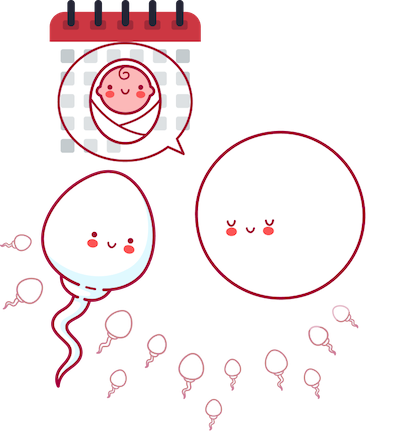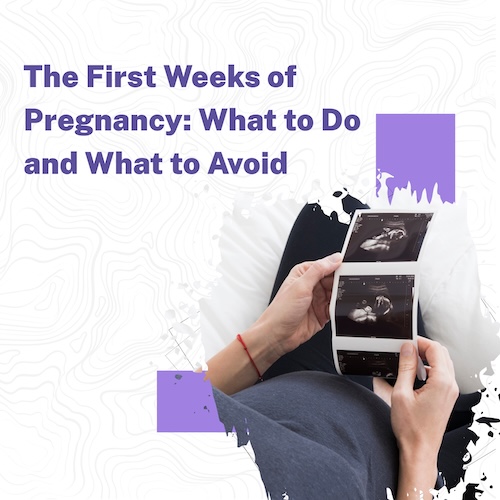How many days do eggs and sperm survive?
Understanding how long sperm and eggs survive inside the human body is one of the most important foundations of reproductive knowledge. These survival times directly shape the fertile window, determine when conception is possible, and explain why timing intercourse matters so much when trying to get pregnant. Many people assume that pregnancy can only happen on the exact day of ovulation, but in reality, the biology of sperm and eggs tells a more nuanced and fascinating story.
Human reproduction depends on the meeting of two very different cells: sperm and egg (ovum). These cells differ greatly in size, function, and lifespan. Their unequal survival times are precisely what create the window of opportunity for conception.
Sperm Survival: How Long Can Sperm Live?
Sperm cells are surprisingly resilient. After ejaculation, millions of sperm are deposited into the female reproductive tract, but only a small percentage will survive long enough to reach the fallopian tubes, where fertilization occurs.
Survival Inside the Female Body
Under natural conditions, sperm can survive up to five days inside the female reproductive tract. However, this maximum survival time only occurs when conditions are favorable. In most cases:
- Many sperm die within a few hours
- A large portion perish within 1–2 days
- Only the healthiest sperm may survive 3–5 days
The vagina itself is an acidic environment designed to protect against infection. This acidity is hostile to sperm and causes many of them to die quickly after ejaculation. However, sperm do not need to stay in the vagina for long. Those that quickly pass through the cervix and into the uterus have a much higher chance of survival.
The Critical Role of Cervical Mucus
Cervical mucus plays a central role in sperm survival. Around ovulation, hormonal changes cause the cervix to produce fertile cervical mucus, which is clear, stretchy, and slippery. This mucus:
- Protects sperm from acidity
- Nourishes sperm cells
- Helps sperm swim more efficiently
- Acts as a reservoir, slowly releasing sperm over several days
In contrast, outside the fertile window, cervical mucus becomes thick and sticky, forming a barrier that blocks sperm and drastically shortens their lifespan.
Sperm Survival Outside the Body
Outside the human body, sperm are far less durable. On dry surfaces, sperm usually die within minutes. In laboratory conditions—such as fertility clinics—sperm can survive longer when stored in controlled environments, sometimes up to five to seven days, or even longer if frozen (cryopreserved). However, these conditions do not reflect natural conception.
Egg (Ovule) Survival: A Very Short Window
Compared to sperm, the egg has a much shorter lifespan. After ovulation, a mature egg is released from the ovary and captured by the fallopian tube. From this moment, the clock starts ticking.
How Long Does an Egg Live?
An egg remains viable for about 12 to 24 hours after ovulation. During this brief period:
- The egg can be fertilized by a sperm
- If fertilization occurs, a zygote forms
- If not fertilized, the egg degenerates and is reabsorbed or shed during menstruation
Once the egg’s viability ends, pregnancy is no longer possible until the next cycle, regardless of how much intercourse occurs afterward.
Why Is the Egg’s Lifespan So Short?
The egg is a large, complex cell designed for a single purpose: fertilization. After ovulation, it does not have the structural support or nutrient supply to survive long on its own. This short lifespan is why ovulation timing is so critical in conception.
The Fertile Window: Where Sperm and Egg Lifespans Overlap
The difference in survival times between sperm and eggs creates the fertile window. This window typically includes:
- The 4–5 days before ovulation
- The day of ovulation itself
Pregnancy can occur even if intercourse happens several days before ovulation, as long as sperm are still alive when the egg is released. However, intercourse that occurs after ovulation has a much lower chance of leading to pregnancy because the egg’s lifespan is so short.
Why Timing Matters More Than Frequency
Many couples trying to conceive focus on frequent intercourse, but timing is often more important than frequency. Intercourse during the fertile window maximizes the chance that sperm and egg will meet.
Key timing insights include:
- The highest chances of conception occur 1–2 days before ovulation
- Intercourse only after ovulation significantly reduces the likelihood of pregnancy
- Sperm quality and egg health still matter, even with perfect timing
Factors That Influence Survival Times
While average survival times are well established, several factors can influence how long sperm and eggs remain viable:
For Sperm:
- Sperm quality (count, motility, morphology)
- Cervical mucus quality
- Hormonal balance
- Infections or inflammation
- Lifestyle factors (smoking, alcohol, stress)
For Eggs:
- Age of the woman
- Hormonal regulation
- Ovarian health
- Timing and quality of ovulation
These factors explain why conception may still not occur even when intercourse is well-timed.
Why This Knowledge Is Essential for Couples Trying to Conceive
Understanding sperm and egg survival helps couples:
- Identify the fertile window more accurately
- Reduce unnecessary stress and guesswork
- Plan intercourse more strategically
- Recognize when medical advice may be helpful
It also helps dispel common myths, such as the belief that pregnancy can occur at any point in the cycle or that ovulation day is the only day that matters.
Summary
Sperm and eggs have very different lifespans, and this difference defines how human reproduction works:
- Sperm can survive up to five days in the female reproductive tract under optimal conditions
- Eggs survive only 12–24 hours after ovulation
- The overlap of these lifespans creates the fertile window
- Timing intercourse within this window greatly increases the chance of conception
By understanding these biological realities, individuals and couples can make more informed decisions, improve their chances of pregnancy, and approach fertility with greater confidence and clarity.








Managed to log in to phwin51login without any issues. The design is on point, and it looks like there’s a lot to see. I’d give it a try.
Another betting site, eh? mexwin89 seems similar to mexwin2. Gonna have to compare them and see which one is better.
Just signed up with jaya77login! The registration was super quick and easy. I’m looking forward to exploring their gaming selection. Give it a try! Here’s the link: jaya77login
Heard about pkr777game from a buddy and I’m hooked. The interface is slick and they got all the classics. Definitely worth checking out: pkr777game